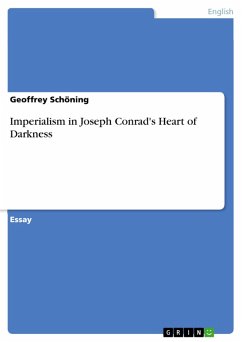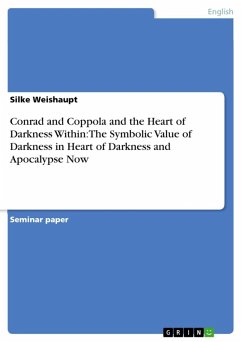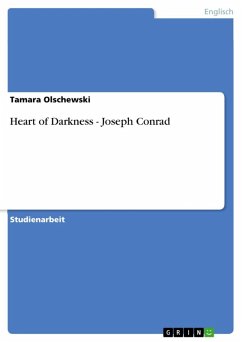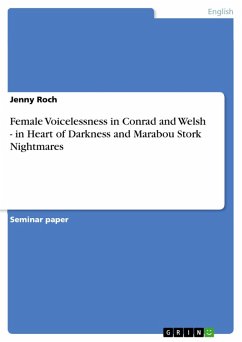Essay from the year 2002 in the subject English Language and Literature Studies - Literature, grade: A-, University of Auckland (Englisch Department), course: Seminar - Victorian Literature, Stage III (5.-6. Semester), language: English, abstract: 'He [Kurtz} began with the argument that we whites, from the point of development we had arrived at, "must necessarily appear to them [savages] in the nature of supernatural beings ... by the simple exercise of our will we can exert a power for good practically unbounded" ... It gave me the notion of an exotic Immensity ruled by an august Benevolence.' (Marlow) Write an essay discussing whether you think Heart of Darkness endorses this view of the colonizing enterprise. Being a student of history, and of European colonialism in particular, I have had the pleasure to hear of Heart of Darkness several times. Whether it was introduced as a literary bonus to lectures on the notorious atrocities in the Congo or merely served as a vague metaphorical reference in scientific and popular articles, Conrad's novel seemed to produce unanimous tenor. "[One] of fiction's strongest statements about imperialism"1 it was; one that like "[no] other Victorian literary work addressed so radically [this] great era."2 Readers like me would thus deny the above quotation in a sort of reflex retort; pointing to the fact that imperial rule might have been immense in its impact on native life but was certainly far from being benevolent. Rapacity and ruthlessness dominated under the spurious cloak of philanthropic interest - just as Heart of Darkness so clearly shows. Apparently. It is the aim of this essay to dive beyond such well-nigh automatic associations and scrutinise the novel's treatment of imperialism, equipped with the tools of literary method. In which way does Heart of Darkness really depict the colonial enterprise? And what are the long-term consequences this view entails? I.e. what kind of general judgement can be inferred from the novel? Since imperialism is first and foremost a phenomenon rooted in time, insights from the historical discipline might be helpful and, wherever appropriate, will be used too. Conrad himself expressed this belief in synthesis between history and literature, emphasising that the "novelist is a historian, the preserver, the keeper, the expounder, of human experience."3 Nonetheless, it is the novel, his fictionalised account, which remains the basis of any kind of interpretation. [...]
Dieser Download kann aus rechtlichen Gründen nur mit Rechnungsadresse in A, B, BG, CY, CZ, D, DK, EW, E, FIN, F, GR, HR, H, IRL, I, LT, L, LR, M, NL, PL, P, R, S, SLO, SK ausgeliefert werden.









